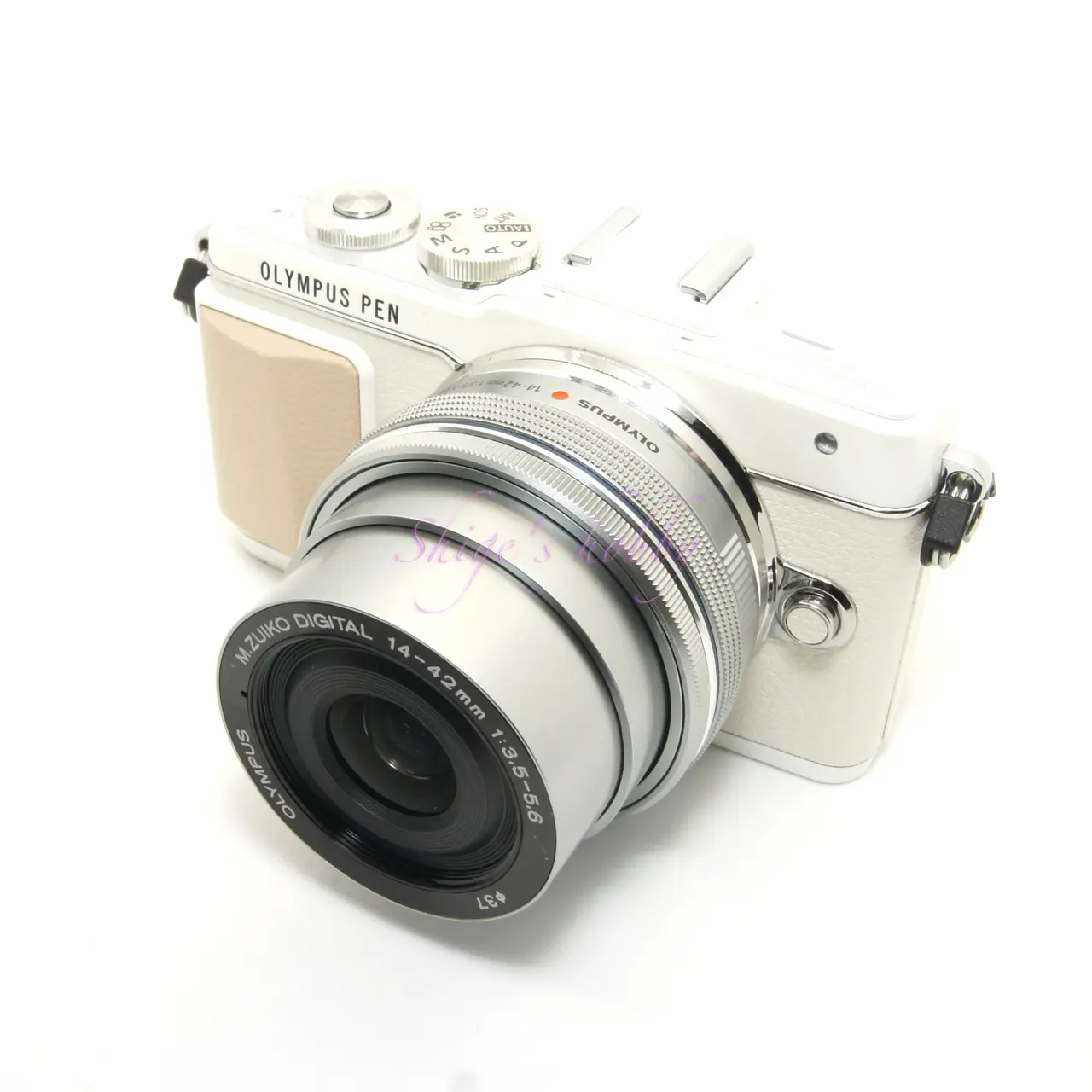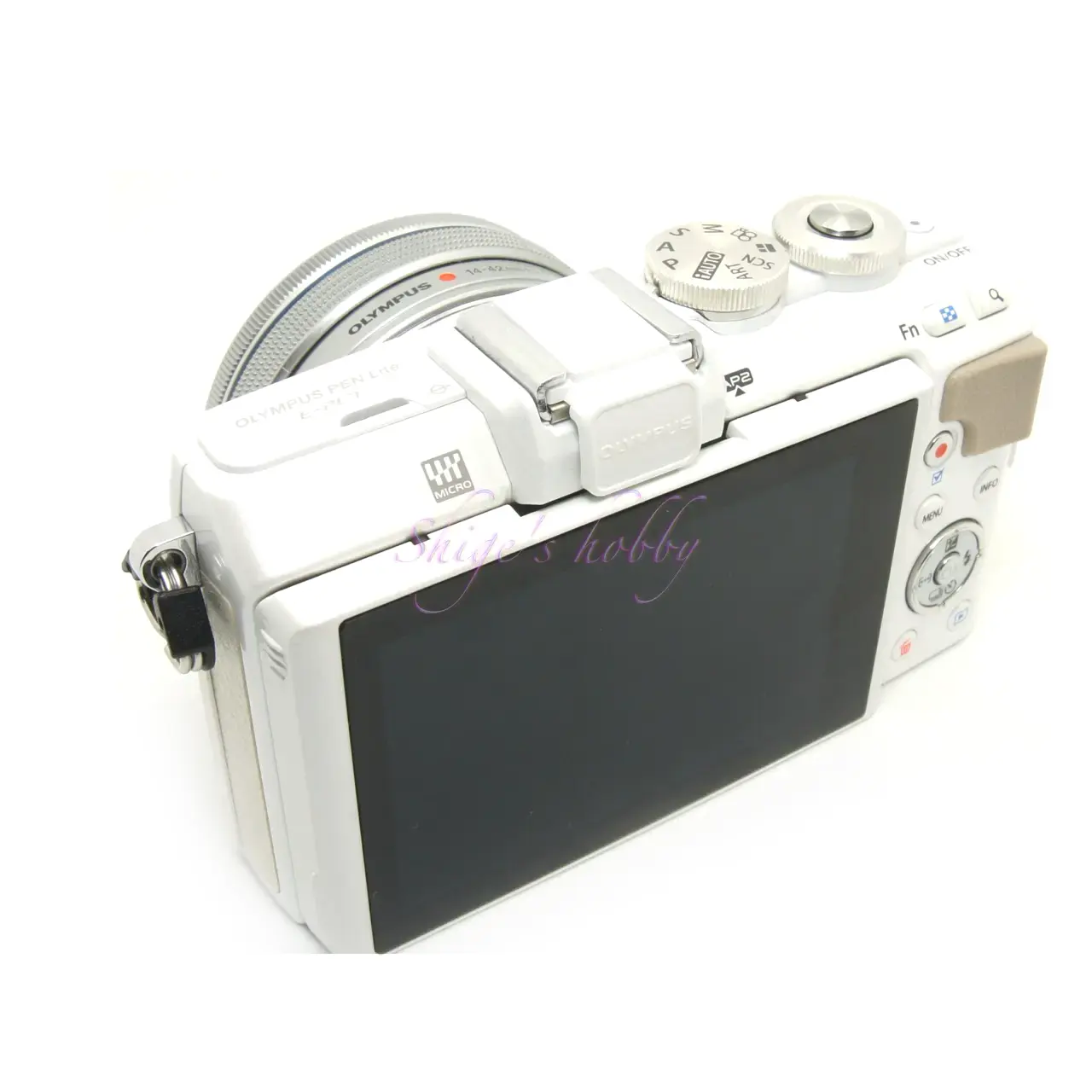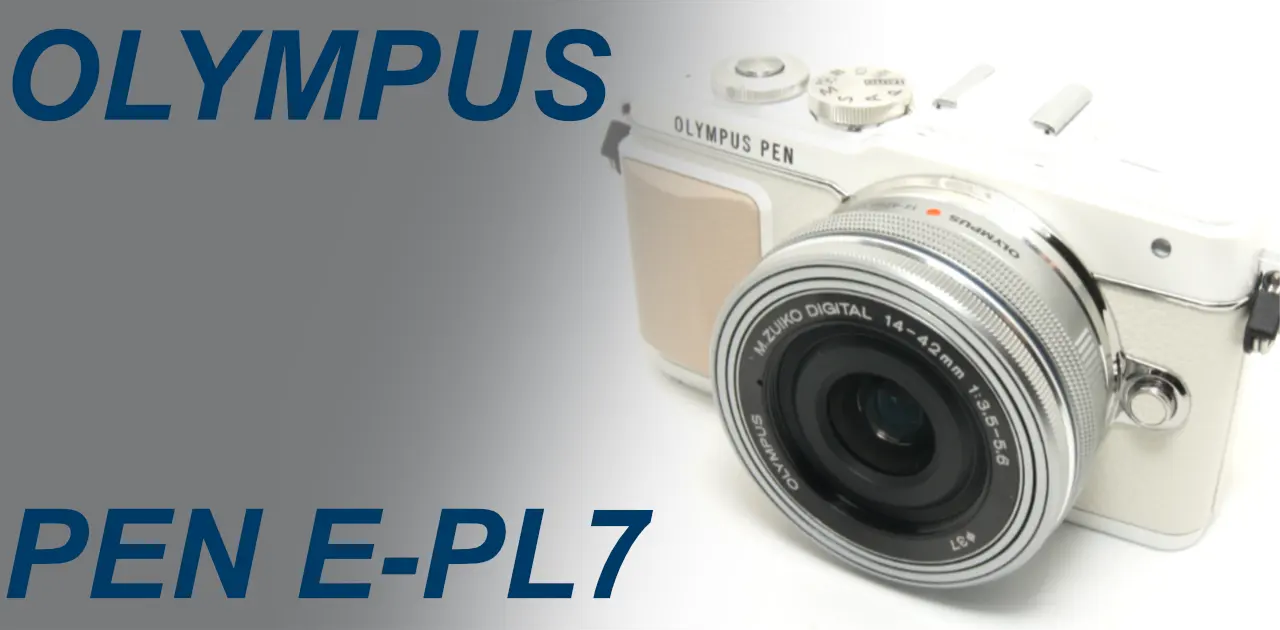Last updated on 2025-05-20
Review and Photo example of the E-PL7 digital camera.
Table of contents
Gallery
The example photos were taken using the M.ZUIKO DIGITAL ED 14-42mm F3.5-5.6 EZ and M.ZUIKO DIGITAL ED 40-150mm F4.0-5.6 R.
Review


1.Overview
The E-PL7 is a low-end mirrorless camera released by Olympus (now OM-SYSTEMS) in 2014.
The main specifications are a 4/3-inch Live MOS sensor with a total pixel count of 17.2 million pixels and a recording pixel count of 16.05 million pixels, a 3-inch 460,000-dot LCD on the rear, and the ability to attach an external LCD viewfinder, VF-2, VF-3, or VF-4.
2.Usability
I tried shooting with the E-PL7 at the 14-42mm and 40-150mm that came with the double zoom kit.
The results were neither good nor bad, and the performance is sufficient for general use.
One thing I noticed while shooting was that the in-body image stabilization function was rarely useful in low-light scenes where you would want the benefits of image stabilization.
I’m not sure if it was due to the image stabilization function, but the response after pressing the shutter was poor, and the display on the rear LCD screen was delayed by a beat, and the captured image seemed to be out of sync. This made me wonder whether the moment I pressed the shutter was being captured, and it was unfortunate that the shooting tempo was slow.
In addition to the autofocus lens, I also tried a manual focus Leica M-type lens using a mount adapter. However, it was difficult to determine the focus position of the captured image on the 460,000-dot rear LCD screen, and it was a bit troublesome that I couldn’t determine the focus position unless I enlarged the image.
When I tried using the external LCD viewfinder, VF-2, I found it to be a bit of a hassle to have to press the display switch button on the VF-2 to display the image on the VF-2 side. The latest VF-4 is equipped with an eye sensor, and the E-PL7 is a compatible camera, so this may be possible.
| VF-2 | VF-3 | VF-4 | |
| Display Pixels | 1.44 million dots | 0.92 million dots | 2.36 million dots |
| Field of view | 100% | 100% | 100% |
| Finder magnification (when using M4/3) | 1.15 | 1 | 1.48 |
| Viewfinder magnification (35mm equivalent) | 0.575 | 0.5 | 0.74 |
| Eye Point(mm) | 18 | 17.4 | 21 |
| Diopter adjustment range(m-1)(dpt) | -3~+1 | -3~+1 | – 4~+ 2 |
| Eye Sensor | No | No | Yes |
| Weight (g) | 32 | 28 | 41.8 |
| Size (width x height x depth mm) | 29.4×48.5×46.3 | 25.4×44.1×48.3 | 30.4×48.2×47.8 |
| Tilt Mechanism | Upward angle up to 90 degrees | Upward angle up to 90 degrees | Upward angle up to 90 degrees |
| Shoe lock function | No | No | Yes |
| release date | December 2009 | September 2011 | June 2013 |
・The unit of diopter adjustment range (m-1) (dpt) is expressed in “diopter”, which represents the refractive index of the lens
・The VF-4 eye sensor is compatible with E-P5, E-PL8, E-PL7, and E-PL6
Considering the positioning of this camera, it is not a camera for playing around with manual focus lenses, but a camera to be used with autofocus lenses.
And, although it may be unavoidable considering the year the camera was released, one of its drawbacks is that it does not have an electronic shutter. The E-PL7’s mechanical shutter makes a fair amount of noise and can be noisy in some scenes, so it is not suitable for people who want to shoot quietly.
The successor model, the E-PL9, was the first to feature an electronic shutter, which added an electronic shutter function for quiet shooting.
3.Summary
The E-PL7 is a member of Olympus’ low-end E-PL series, and the basic system has not undergone any major improvements since the E-PL5 released in 2012, with the product line having undergone minor changes: E-PL5 > E-PL7 > E-PL9 > E-PL10.
There seems to have been an effort to make some changes to the camera, but in the end the changes have only been superficial, and it’s disappointing that there doesn’t seem to have been any progress as a camera.
Specification and Series Camera
The reason why the basic components of the camera have not been updated may be because high-end Micro Four Thirds models are limited to 20MP, so this model has no choice but to remain at 16MP.
I have read that the image sensor has been changed from the E-PL5 to the E-PL7 and onwards, but since the pixel count is the same, it is difficult to tell the difference when comparing the results with the same lens.
The E-PL9 does not have a terminal for attaching an electronic viewfinder (EVF), which has reduced the cost of the camera. However, when you consider how many photographers actually attach an EVF to a camera of this class, there should not be that many, so this change can be said to be a rational decision.
| Items | E-PL5 | E-PL7 | E-PL9 |
| Camera effective pixels | 16.05 megapixels | ← | ← |
| Lens mount | Micro Four Thirds Mount | ← | ← |
| Image sensor | 4/3-type Live MOS sensor, total pixel count 17.2 million pixels | ← | ← |
| Electric Shutter | none | ← | Supported in “silent shooting” in SCN/AP mode 1/16000 to 60 seconds |
| Image Stabilization | Built-in (image sensor shift type image stabilization) Angular stabilization (XY axis) | In-body image stabilization (image sensor-shift type 3-axis image stabilization) | ← |
| EVF | EVF-2/EVF-3/EVF-4 | ← | なし |
| Back LCD | 3.0-inch movable LCD* approx. 460,000 dots (16:9), capacitive touch panel | 3.0-inch movable LCD (approx. 1.04 million dots (3:2) capacitive touch panel) | ← |
| Include flash | なし | ← | Built-in TTL flash GN=5.4 |
| Battery | BLS-50 Compatible battery (Ads by amazon) | ← | ← |
| Size W x H x D(mm) | 110.5 × 63.7 × 38.2 | 114.9× 67 x 38.4 | 117.1 × 68.0 × 39.0 |
| Weight(g body only) | 279g | 309g | 332g |
| Body color | White, black, silver | ← | White, black, brown |
| Release date | 2012.10.12 | 2014.9 | 2018.3.9 |
| Price(Yen/No-tax/only body) | ¥90,000- | ¥66,000- | ¥70,000- |
Options
- Genuine Leather Lens Cover “LC-60.5GL” (Brown/Light Brown/Black)
- Genuine Leather Body Jacket “CS-45B” (Brown/Light Brown/Black)
Reference links
- E-PL7 Official page
- M.ZUIKO DIGITAL ED 14-42mm F3.5-5.6 EZ・Official page
- M.ZUIKO DIGITAL ED 40-150mm F4.0-5.6 R・Official page
Update history
- 2025.5.18
- 2025.2.17
- 2024.06.08
Affiliate links
- Please see the disclaimer regarding advertising here.
- Italicized links in the text are advertisement links that take you to other sites.
- Amazon Affiliate link / Leica lens
- Amazon Affiliate link / E-PL7
- Amazon Affiliate link / Olympus camera

Amazon Prime Sale


